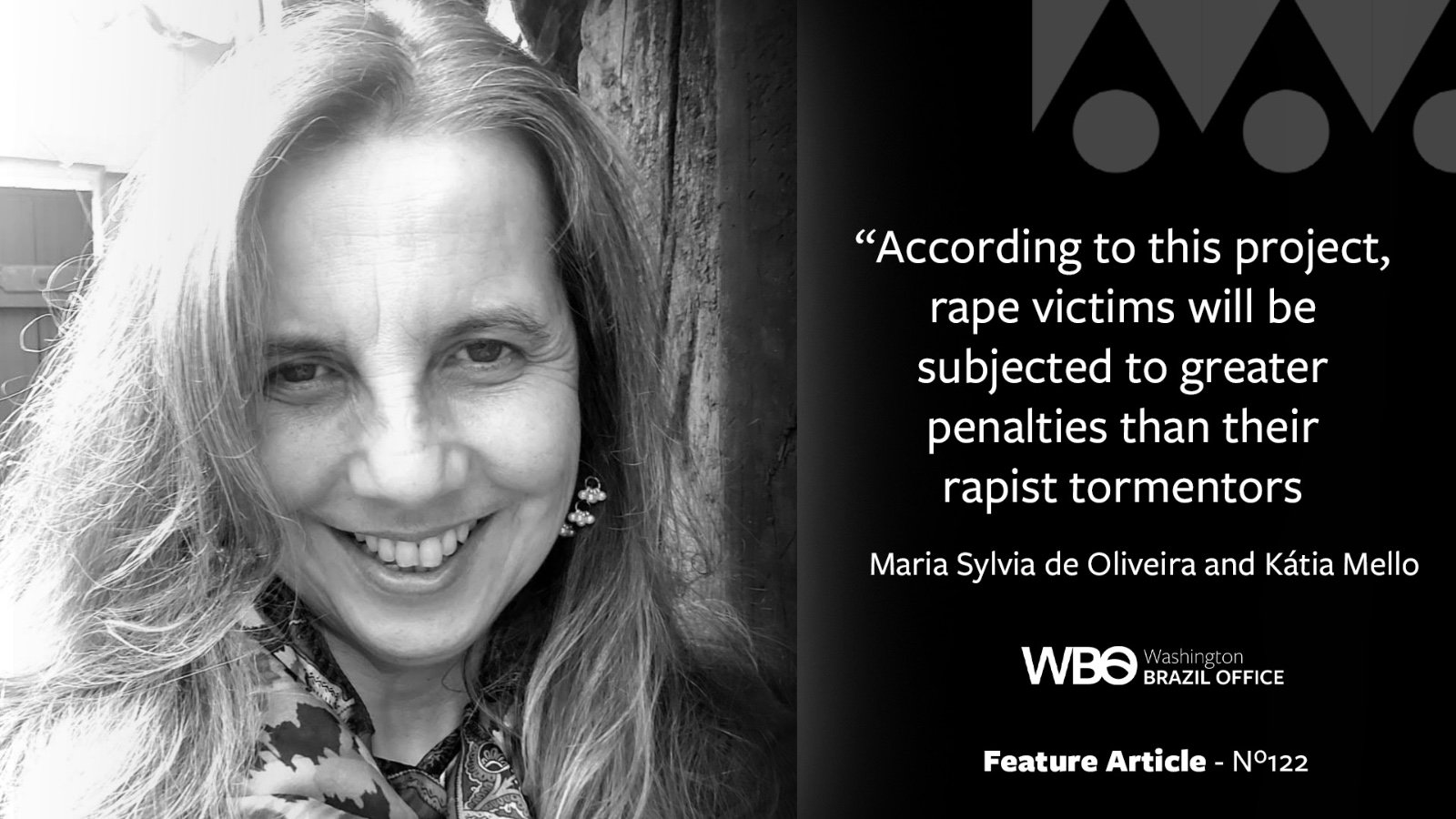Abortion Legislation in Brazil and the Impact of the Bill on the Lives of Black Girls and Women
Maria Sylvia de Oliveira is a lawyer and the director and coordinator of the Gender, Race and Equity area at Geledés – Instituto da Mulher Negra. Kátia Mello is a journalist with a master’s degree in African studies from the University of Birmingham, United Kingdom. This text was originally published on the Portal Geledés website on June 20, 2024, and was kindly provided for reproduction for the WBO bulletin.
Bill 1904/24 is another in a long list of violence perpetrated and tolerated by the Brazilian State against women and girls. It took just 24 seconds for the Chamber of Deputies to approve, as a matter of urgency, the processing of the project that aims to equate abortion performed after 22 weeks of pregnancy to the crime of simple homicide, even when the pregnancy is the result of rape, which in Brazil occurs every 8 minutes.
According to this project, rape victims, that is, raped women, will be subjected to greater penalties than their rapist tormentors, since current legislation establishes a maximum prison sentence of 10 years for rapists, with the possibility of conviction of 12 years for cases of rape of minors between 14 and 18 (art. 213, § 1 of Decree-Law – 2,848/1940). The announcement caused outrage in a large segment of Brazilian society, and it could not be different for the organization founded and led by Black women 36 years ago.
In May 2024, Geledés - Instituto da Mulher Negra presented a report to the United Nations Committee for the Elimination of Discrimination against Women (CEDAW), which analyzed the situation of women's rights in Brazil, including the right to abortion.
The document presented data that during the Covid-19 pandemic there was a 45 percent reduction in services that performed the procedure, pushing girls and women into clandestine services. According to the National Abortion Survey (PNA), 52 percent of women who had an abortion for the first time were 19 years old or younger. Of this total, 46 percent were teenagers between 16 and 19 years old, and 6 percent were between 12 and 14 years old.
Data on hospitalizations and deaths due to unsafe abortions show that Afro-descendant and Indigenous women are the most affected. In the last decade, 6 in 10 deaths from abortion were women of African descent. When compared to white women, women of African descent are twice as likely to die. In other words, abortion is, was, and will always be a public health issue.
According to the Yearbook of the Brazilian Public Security Forum, in 2023, there were 74,930 reported cases of rape--taking into consideration that this is an underreported-- crime, which included the total number female victims according to Art. 213 of the Penal Code, along with those raped in a vulnerable age, according to Art. 217-A of the Penal Code. The data reports that 56.8 percent of the victims were Black girls and women who already experience the greatest difficulties in obtaining assistance from the State.
The data also indicates that 61.4 percent of people raped were between 0 and 13 years of age. We are talking about revictimizing children, who will be forced to carry a pregnancy resulting from a crime, whose perpetrators in 86.1 percent of cases are people they know, and in 64.4 percent are their own family members.
The situation regarding violence against women and girls in Brazil is extremely serious and what is seen in the Chamber of Deputies [House of Representatives] is not just a setback in Brazilian legislation, considering that abortion, due to rape, has been excluded from legal prosecution as provided for in our penal code since 1940. What we see in the Chamber of Deputies is the cruelty of backwardness and fundamentalism that have strength in the congress.
The fact that the proposed law sets the gestation period in this case up to 22 weeks for the possibility of carrying out an abortion does not reduce the seriousness of the proposal. Most Brazilian states have either deactivated services that offer access to legal abortion or have created severe obstacles to it, including denouncing and criminally prosecuting rape victims.
The stories of girls who, victims of rape, became pregnant, sought support in the judiciary, and were denied their rights are still vivid in our memory. It is worth remembering, for example, the shocking case of a ten-year-old girl in Santa Catarina, taken to the judiciary to claim a right guaranteed by Brazilian legislation, in which the judge responsible for the case asked her if she could not “endure just one more little bit,” when faced with a pregnancy that could take her own life. The girl was visibly revictimized by the judicial system, the Brazilian State institutions that were supposed to protect her.
The lives of thousands of women and girls cannot be the subject of political disputes among members of congress, as the author of the proposed legislation himself says that he seeks to “test” the executive branch on the veto of PL 1904/24, warning about a campaign promise made by President Lula in the letter to evangelicals.
No democratic country adopts the criminalization of rape victims as a public policy. Congress, the so-called House of the People, should be responsible for ensuring quality education for the entire population, enforcing constitutional provisions, including sexual education and respect. Sadly, with a special impact on Black girls and women, the current congress is completely unconnected from the reality of the daily life for most of the Brazilian population.


